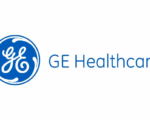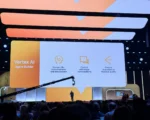Suki Expands Collaboration with Google Cloud to Enhance AI Tools for Clinicians

Health-tech startup Suki has announced an expanded partnership with Google Cloud, focusing on broadening its range of assistive tools for healthcare professionals. The collaboration leverages Google Cloud’s Vertex AI platform, which enables the development and deployment of advanced AI models. With this new integration, Suki aims to go beyond clinical documentation to offer tools that support clinicians in managing patient data more efficiently.
Suki’s flagship product, the Suki Assistant, helps physicians by automatically converting patient visit recordings into clinical notes, thus relieving them of the time-consuming task of manual documentation. The enhanced partnership with Google Cloud introduces two new features—patient summarization and a Q&A tool—designed to further assist clinicians in providing care.
The patient summary feature will allow doctors to access essential patient information, such as age, medical history, chronic conditions, and recent prescriptions, with a single click. By consolidating this information in one place, the feature aims to save clinicians the 15 to 30 minutes they typically spend searching for these details. Additionally, Suki’s new Q&A tool will allow doctors to ask specific questions about a patient’s health, such as querying their latest lab results or vaccination history. This tool uses AI to provide quick, accurate answers, improving efficiency and enabling healthcare providers to focus more on patient care.
The new features are expected to be available to a select group of clinicians starting today, with general availability anticipated for early next year. Importantly, these updates will not incur additional costs for existing customers.
Suki’s CEO, Punit Soni, emphasized that the company’s vision has always been to create a comprehensive assistant for clinicians, not just a documentation tool. He added that Suki’s innovations reflect a broader trend in healthcare, where AI is increasingly being integrated into clinical workflows to reduce administrative burdens. Soni, who previously worked at Google, stated that AI’s role in healthcare is poised for significant growth, much like the internet’s transformative impact on business and communication.
The company, which is already used by 350 health systems and clinics across the U.S., has seen rapid growth, tripling its client base this year. As healthcare systems continue to face challenges related to burnout and administrative overload, AI tools like Suki’s could become essential in easing the workload for doctors and improving overall efficiency in the healthcare sector.
Suki recently raised $70 million in funding, highlighting the growing interest from investors in healthcare AI solutions. With competition intensifying, including from companies like Microsoft’s Nuance Communications, which also provides AI-powered documentation tools, Suki’s ability to innovate with these new features will be crucial in maintaining its competitive edge.





















